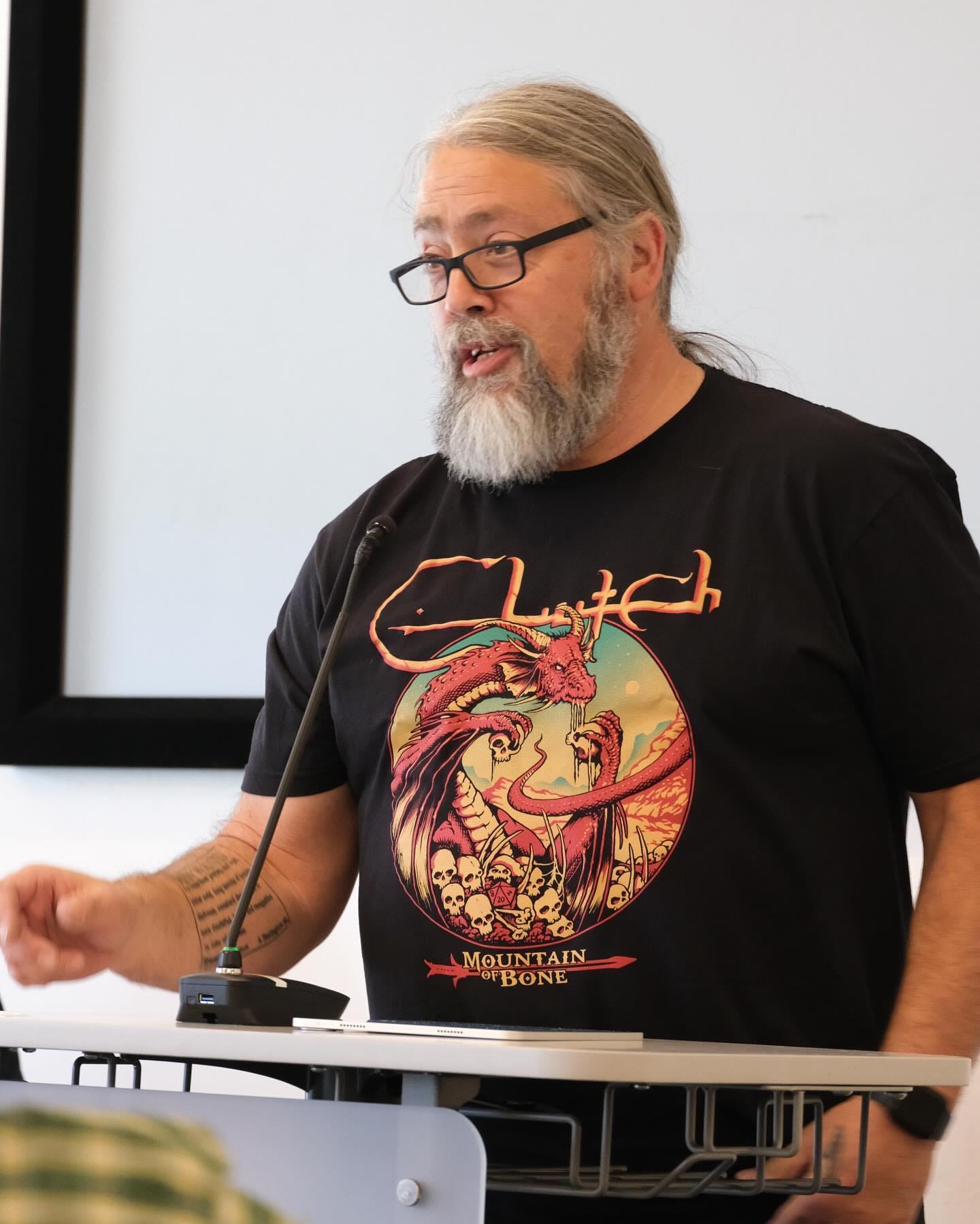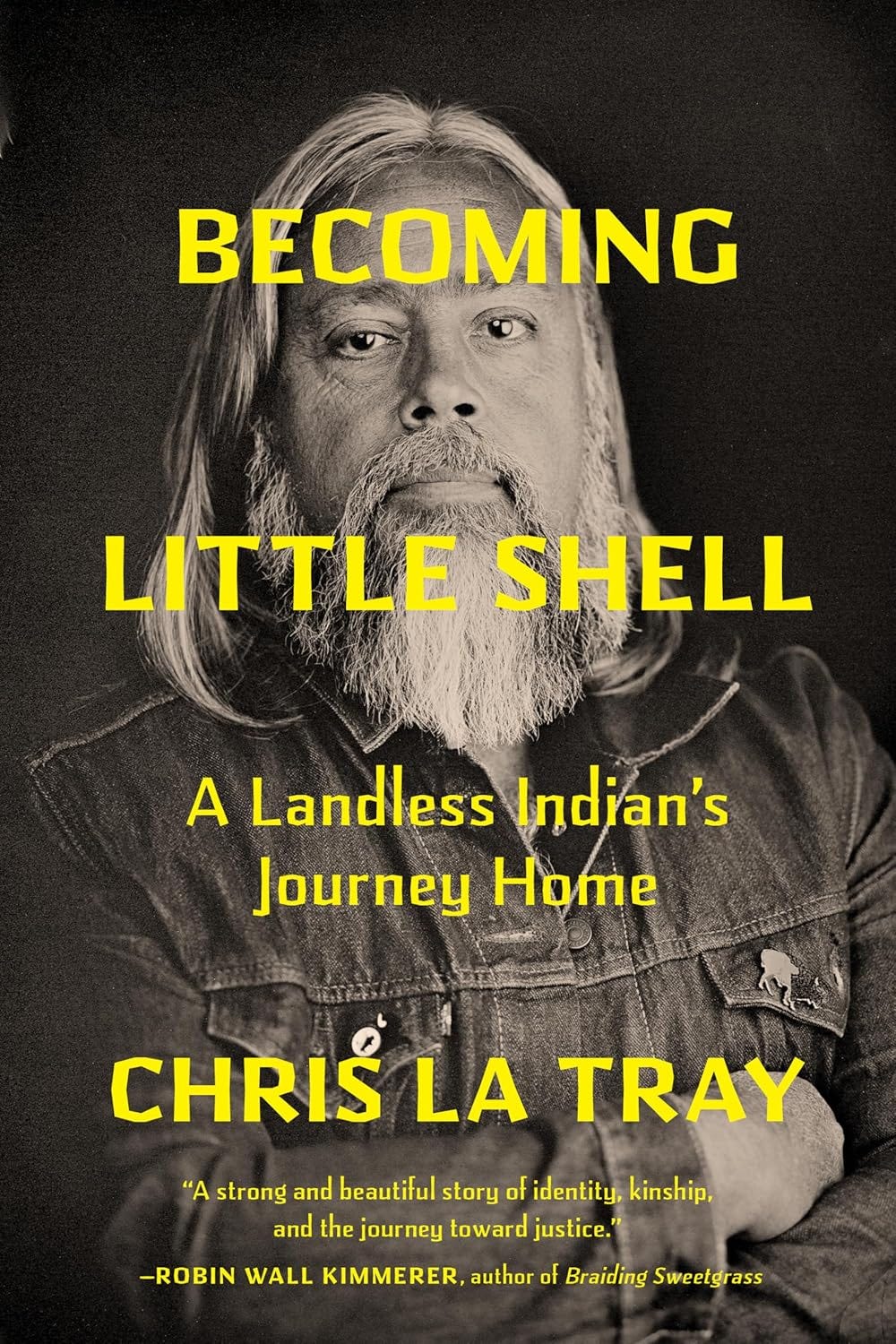Becoming Little Shell: Chris La Tray Finds His Tribe
I started reading Chris La Tray’s memoir about finding his Native American heritage on Columbus Day; I turned the last page on Thanksgiving morning. Those two bookended dates marking the white man’s “discovery” and subsequent invasion of what we call America were only half coincidental. I deliberately chose to begin Becoming Little Shell: A Landless Indian’s Journey Home on Columbus Day as a symbolic kick against the white patriarchy desperately trying to retain its grip on the land, but it was the book itself that chose the end date of my journey through La Tray’s story. I appreciate how the forces of my daily reading schedule, the page count, and the memoir’s natural rhythm all conspired to make their point by coming to a fitting close on Thanksgiving. This is a feast of a book without a turkey in sight.
Becoming Little Shell is as much a story of burying a narrative as it is of one person’s self-discovery of how they fit into that narrative. It’s a mystery story whose solution lies inside the very family that surrounds you. La Tray grew up in western Montana with a father who denied his own Indigenous heritage and a clammed-up mother who kept the family’s secret mostly behind her lips for much of La Tray’s life. Though Chris “passed” for white, and played “Cowboys and Indians” as a kid, he always wondered about his true roots—which were deeper in Montana and Canada soil than he’d imagined.
“I’ve thought about Indians my entire life,” he writes. “I grew up with the vague knowledge that my father’s side of the family was Indian (Chippewa, specifically) as my grandmother would speak of it at times.”
It wasn’t until Chris’ grandfather died in 1996 that “pieces started falling into place.” Who were all those “Indians” at the funeral? And what was all this talk about Metis culture? Chris was twenty-nine years old and about to take his first steps toward the core truth of his life: that he was part of a larger community whose identity had been nearly erased by the white man’s history schoolbooks. Becoming Little Shell is the account of not only his own journey toward recognizing his ancestry but of the whole Little Shell tribe’s struggle for federal recognition over the centuries, a fight that would last 156 years as it turned out.

La Tray cites the tortured history of his people in clear-eyed terms, even while contemporary white settlers’ words are moral agony for us to read now in the 21st century—like this from a Benton (Montana) newspaper of the 19th century describing the “half-breed” Canadian Metis from whom the Little Shell tribe sprung: “They produce nothing but discord, violence, and bloodshed where ever [sic] they are permitted to locate, they are a worthless, brutal race of the lowest species of humanity, without one redeeming trait to commend them to the sympathy or protection of any Government.”
Those are hard words for anyone to read in 2024. But they, and all the rest of the sentences in this revelatory book, are worth reading no matter your gender or race.
La Tray, Montana’s current Poet Laureate, has a generous spirit, open to the experience of others and, through his work, he’s always willing to share the gifts he’s been given—whether that’s the wonder to be found in a backyard snowstorm, or the fury over the way his people have been treated. In this case, his anger is like forked lightning on the page when he writes about the treatment of the Little Shell under the westward steamroller of Manifest Destiny: “We never left our homeland; it was taken from us. We never chose to live on the fringes; we were pushed there.”
And now, stepping from that outside fringe toward the center of the circle, La Tray has raised his voice in a call for many of us to recognize the horrible way we’ve dehumanized others—all in the name of greed and power and fear. I, for one, am listening to what he has to say.


